An Exceptionally Qualified Supreme Court Nominee
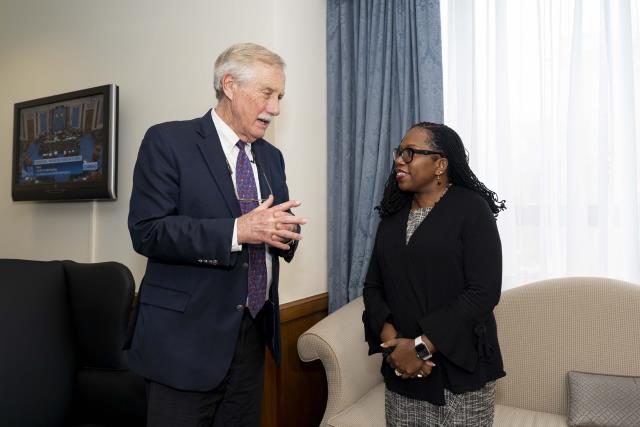
After carefully reviewing Judge Ketanji Brown Jackson’s record, attending portions of her nomination hearings before the Senate Judiciary Committee, and meeting with her face-to-face, I will enthusiastically vote to support her confirmation.
I have been impressed by Judge Jackson’s extensive qualifications, deep understanding of the law, and exemplary judicial temperament, and can clearly see why she has received bipartisan support throughout her judicial career. I’m especially pleased that she will bring a much-needed new perspective as both the first Black woman and the first former public defender to be appointed to the Supreme Court.
I am confident that Judge Jackson will carry on Justice Breyer’s legacy of thoughtful service on the bench, and look forward to seeing her confirmed to our nation’s highest court.
Seeing Ukraine's Resolve and the Free World's Unity Firsthand

As the Russian attack on Ukraine enters its second month, Vladimir Putin’s deadly invasion has created both unspeakable tragedy and unshakeable unity. When Putin started this heinous war, he hoped to reconstitute the Soviet Union and divide the free world – instead, he has united the Ukrainian people in opposition to Russia and strengthened the NATO alliance and the resolve of the free world for years to come. Earlier this month, I traveled to Poland and Germany with a bipartisan group of Senators to see the effects of this war firsthand, and better understand how America and our allies can continue to support the brave Ukrainians who are fighting for their freedom.
In Poland, we visited a refugee welcoming center on the border of Ukraine where we saw how the brutal Russian war has displaced millions of Ukrainians – primarily women, children, the elderly, and other vulnerable people who want nothing more than to peacefully return to their homes and normal lives. This immense suffering is unimaginable – and wholly unnecessary. We also met with Ukrainian leaders, who detailed the support their country needs, including further humanitarian aid, military aid, and sanctions.
In Germany, we met with German political leaders, NATO commanders, and American troops (including Waterville's Sergeant First Class Dylan Lodge pictured above with me on his tank) who are reminding our enemies and allies alike of our national commitment to defend every inch of NATO soil. It was a powerful reminder of how fast the free world has come together to counter Putin's aggression.
In both countries, it was clear that our united efforts are making a real impact – but that we must continue to deliver the aid and weaponry that Ukraine and our allies need to stand strong against Russia’s aggression. After returning from the trip, I talked to CNN's New Day about my takeaways from the region and the dangerous moment we're in; if you're interested you can watch that HERE.
In D.C., Congress and the Biden administration have taken critical steps to support the Ukrainian people. In the midst of Russia's attack on Ukraine, Congress passed our Fiscal Year 2022 appropriations package that included almost $14 billion in support for Ukraine. The package makes much-needed investments to strengthen Ukraine’s resistance against Russian aggression, restock equipment already transferred to aid their security, and billions in humanitarian support to address the horrific and needless suffering of millions across Ukraine. The aid is already making its way to Ukraine to help push back Russian forces.
We've also imposed swift, crippling sanctions on the Russian economy to make sure that Putin and his oligarch friends cannot escape the consequences of their war. These measures have made significant impacts on the Russian economy, tanking the ruble and blocking oligarchs from their offshore accounts – but we must keep up the pressure. It is time for us to close any possible escape hatch Putin could use to help fund his unconscionable war, which is why I’ve joined a bipartisan group of my Senate colleagues to introduce the Stop Russian GOLD Act that would target Russia's ability to fund the war using their large gold reserves. I was glad to see the Biden administration took a step to address this concern after we raised the issue with Treasury Secretary Yellen, and we’ll keep pushing for Congressional action.
Perhaps what was most clear during our fact-finding mission to Europe was that this unprovoked attack will not achieve Putin’s goals; in fact, he has already lost. The Ukrainian people will never join Russia after the pain he has inflicted, NATO and Europe are more unified than they have been in decades, and Putin and his oligarch cronies are feeling the impact of their mistake.
I’m praying for the people of Ukraine who are needlessly caught in this conflict. We will continue pushing – together – to hold Russia and Putin accountable.
Addressing Rising Gas Prices

As Putin's war devastates Russia's economy, the economic ripples are being felt across the globe. In Maine and America, the conflict has caused a sharp rise in prices at the pump, and is driving up costs for our families and households.
There's a long history of the President getting blamed for gas prices – which I don't think is quite fair. Instead, these prices represent a much simpler comparison between the supply of gas and the demand for gas. With Russia's invasion of Ukraine and a reduction of oil production during the COVID-19 pandemic limiting the supply of gas, prices have risen.
In many ways, oil companies’ decisions have led to the recent spike. With gas prices and demand steadily rising from their pandemic lows, you would expect oil companies to increase supply – but instead, the oil and gas industry has made a conscious decision to invest in their shareholders rather than their production capability. This past year, the industry has announced almost $40 billion of stock buybacks, and about $50 billion of dividends for shareholders. That money doesn't do anything for production, supply of gas, or the prices Maine people are paying at the pump – it just pads the pockets of shareholders and executives at our expense.
Don’t take my word for it – when asked just a few weeks ago why production hasn’t increased, a top executive in the oil industry said it was a simple calculation: “Are you going to keep your promise [to shareholders] or are you going to be patriotic?” Well we know what they chose – they've chosen not to be patriotic, and Maine people are paying the price at the pump.
Congress has to get to the bottom of this and act to lower gas prices for the businesses and families feeling the pinch. Earlier this month, during a hearing of the Senate Energy and Natural Resources Committee, I confronted a representative of the oil industry on this decision, and why they haven't stepped up production – and I’ll keep pushing to get answers and lower costs.
Passing a Budget that Invests in Maine and America
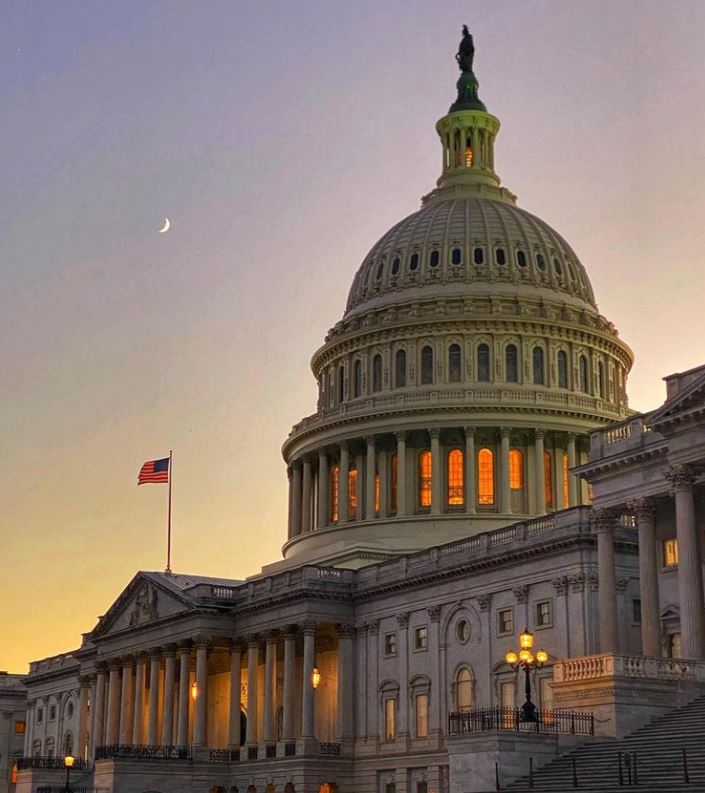
This month, Congress passed our Fiscal Year 2022 appropriations bill, which made a series of critical investments in the challenges facing people throughout Maine and across the nation. The package includes vital funding to support America’s national security, from purchasing critical equipment built right here in Maine to hardening our defenses in cyberspace. It also appropriates the resources required to strengthen our nation’s health by securing progress made on important new tools including telehealth and confronting crises like the sharp increase in overdoses afflicting Maine communities.
These provisions – along with others to bolster our economy, care for our communities, and address our energy needs – make this legislation a vital step forward that will improve our nation in the year ahead.
The 2022 appropriations bill also saw the bipartisan return of Congressionally-Directed Spending (CDS), which allows Members of Congress to help secure direct funding for important state, local, or nonprofit projects with demonstrated community value. I was proud to help secure over $137 million for 93 Maine projects. From fire stations and town halls to rural healthcare and economic development, these funds will improve the lives of Maine people and invest in the future of our communities.
These historic investments will go directly to the local governments and nonprofits that have provided economic opportunity, supported civic engagement, and distributed vital public services to the people of Maine. These organizations have made immense contributions to our state – especially during the COVID-19 pandemic – and I’m glad they will be getting the funding they need to continue and expand their efforts.
I’m excited to see the impacts of these investments – and am looking ahead to see how we can continue this success. I am now accepting proposals for CDS projects for this upcoming year online at: https://www.king.senate.gov/cds. If you work for a nonprofit or local government with a potential project that might help Maine people, please reach out. I’m here to help, and do whatever I can to support important projects that will make a real difference for our communities.
Improving the Postal Service for Years to Come
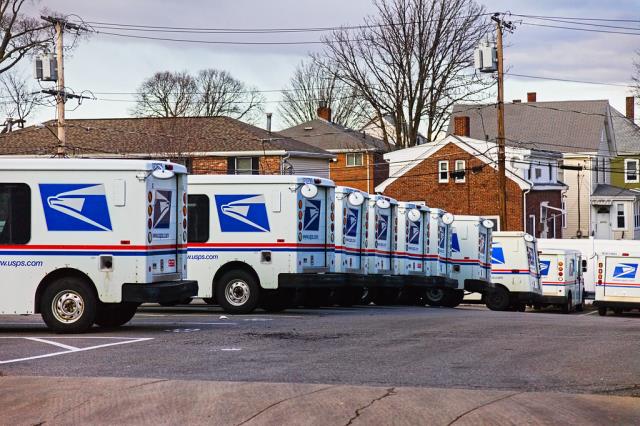
From life-sustaining medications and important financial documents, to postcards and letters from loved ones, the United States Postal Service’s (USPS) timely, reliable delivery of mail to Maine households is an absolutely essential service for our state. But in recent years, we’ve seen an uptick in concerning reports of postal delays affecting people across Maine and the nation. That’s why it is such welcome news that this month, Congress made significant, bipartisan reforms to the USPS to address these issues and shore up the long-term health of the service.
The Postal Service Reform Act, which passed 79 to 19, will address delays, create much needed transparency, and take important steps to secure the USPS’s stability for the future. Critically, the legislation eliminates the requirement for the USPS to prefund retiree healthcare costs seventy-five years in advance, a massive competitive disadvantage that no private business or other government service faces.
As one of the most rural states in the country, the need for reliable delivery has always been important to our state, and the COVID-19 pandemic has only made it more essential. This strong, bipartisan bill rises to the needs of both the USPS and the delivery expectations of Americans in 2022, and I look forward to seeing the improvements to the service for years to come.
Making America's Greatest Treasures More Accessible

From watching the sunrise over Acadia National Park to catching the perfect bass at the Katahdin Woods and Waters National Monument, many of life's most precious moments can be found in the great outdoors and on our extraordinary federal public lands. These lands are each unique American treasures, and Congress has a responsibility to preserve and protect them for generations to come.
As our parks experience increased visitation, a changing climate, and rapidly evolving technology, there are both challenges and opportunities for these greatest treasures in the years ahead. On the Senate Subcommittee on National Parks – which I am proud to chair – we have been working to address these issues and secure a bright future. As a part of this effort, Senator Steve Daines (R-Mont.) and I are urging the Biden administration to provide more information on the impact of increased National Park visitation on the parks, visitors, and local communities.
This past July, Yellowstone National Park had over 1 million visitors in a single month, and Acadia saw a record of over 4 million visitors last year. We should continue to encourage visitation to all of our federal lands, however, as visitation increases, it is important we know the scope of what the impact is. I hope that National Parks Service (NPS) Director Charles Sams will give a public briefing on this important issue and help the Committee understand the impacts, both positive and negative, so we can better address the situation and work to resolve any challenges.
As these parks see more visits, it's important that parkgoers still have the best possible experience. That's why Senator Daines and I are calling on the NPS to offer a digital version of the “America the Beautiful” passes that give access to over 2,000 federal recreation sites, in addition to the existing physical version. This would improve efficiency and visitor experience at busy parks – we already do it at Acadia! – helping more Americans access our federal lands and promoting the long-term success of our greatest treasures.
As usual, Maine leads the nation on this issue, with Acadia offering digital entrance passes that helps visitors skip long lines. The NPS should follow Acadia's lead and offer these digital passes.
There are significant challenges and opportunities facing our federal lands, and we must ensure that these federal recreation areas continue to be available for the benefit and enjoyment of the people of this generation and next. Together, between the efforts of Congress, the NPS, and the millions of Americans who love our National Parks, "America's best idea" is on the right track.
Supporting Universal Broadband Access
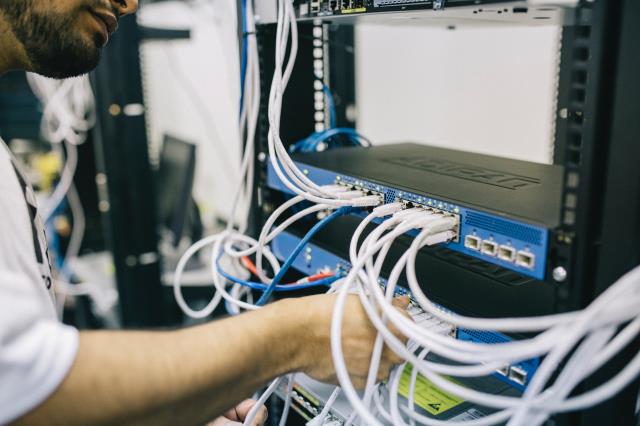
Last year, Congress made overdue, transformative broadband investments with the Bipartisan Infrastructure Bill and American Rescue Plan that will help expand connectivity to millions across the country. In total, the legislation will invest over $400 million in broadband connectivity right here in Maine. But as important as this legislation was, the job is not yet done, and some fine tuning is still needed.
One of the key tools for expanding these 21st century connections and the opportunities that come along with them in Maine has been the Federal Communications Commission’s (FCC) Universal Service Fund (USF) – which has provided hundreds of millions of dollars to our state. Unfortunately, the program's funding mechanism has not kept up with the times and is mostly paid for by a fee on landlines. As landline use has declined, this has meant less funding for the USF, and a higher fee on the remaining landlines – placing an undue burden on Maine seniors and rural residents.
Given the importance of the USF, and the outdated funding mechanism, a bipartisan group of my Senate colleagues and I are introducing legislation to reform the program and help deliver universal access to telecommunications services across the state. The Reforming Broadband Connectivity Act will direct the FCC to reform the funding process for this program, ensure the USF can adapt with new technologies, create level playing field for all consumers, and support broadband investments in the years ahead.
The legislation builds on a provision included in both my bipartisan BRIDGE Act and the recently passed Bipartisan Infrastructure Bill, requiring the FCC to evaluate the impact of the bill’s historic broadband investments on the USF and submit a report to Congress within 270 days with their findings.
Together, between this legislation and the historic investments in the Bipartisan Infrastructure Bill and American Rescue Plan, we can finally expand access to affordable, high-speed broadband connections across Maine – delivering on the 21st century vision for our state.
Celebrating a Sweet Maine Day
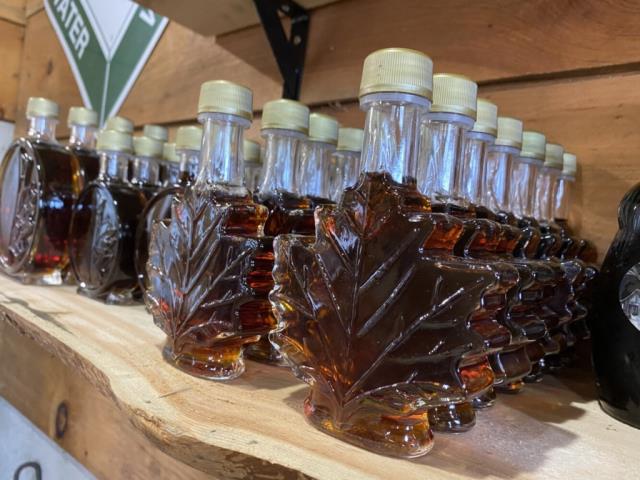
Maine is proud to be the one of the country’s largest maple syrup producers – and the home to the best tasting syrup in the world. Every year on the last Sunday of March, maple producers around the state open their doors for Maine families to learn how to tap trees, boil sap, and sample this delicious product on Maine Maple Sunday
It's a long tradition that honors our state's 550 maple syrup producers and 575,000 gallons of maple syrup that we produce each year. The day celebrates this heritage, highlights the excellence of the maple industry, and recognizes the contributions of the small-maple businesses across our state.
This year, I'm thrilled that the Senate has acknowledged the importance of this uniquely Maine day and unanimously passed my bipartisan resolution to officially recognize Sunday March 27th, 2022 as Maine Maple Sunday nationwide. Hopefully, this official recognition will help bring even more well-deserved recognition to the industry, and can help boost Maine maple sales across the country.
Thanking Our Extraordinary Healthcare Workers
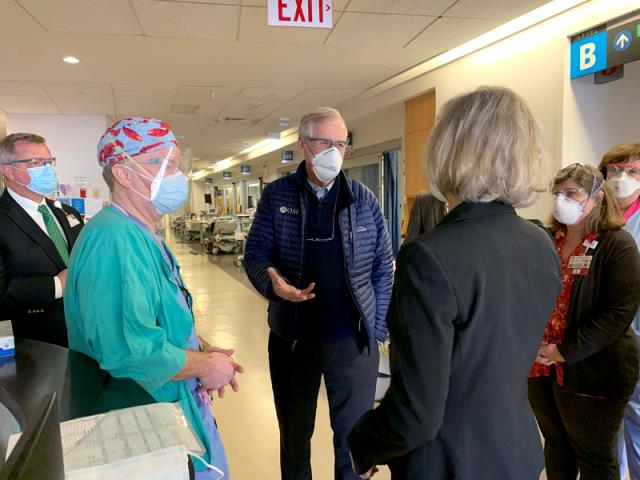
Throughout the COVID-19 pandemic, Maine's healthcare workers have done extraordinary work to keep our state safe and healthy. This has not been easy, and many of these healthcare heroes have put their own health on the line to save others.
Earlier this month, I got to see the efforts of these healthcare workers at Maine Medical Center, and thank them for all they've done over the last few years. During the visit, I met with senior leaders and healthcare providers to hear the latest developments in how Maine Medical Center is weathering the difficulties of COVID-19, toured the facility’s emergency department, and heard about the challenges that the hospital’s care team has faced in caring for patients during a pandemic that has exacerbated the state’s behavioral health crisis.
The tour came shortly after the one-year anniversary of last March’s American Rescue Plan, which helped stabilize the nation’s health and economic recovery from the pandemic. I heard during the visit how the MaineHealth system, which includes Maine Medical Center, has utilized $43 million in American Rescue Plan funding to deliver high-quality care for Maine people.
In the midst of the pandemic, the ARP made critical investments in America’s health, supported working families, and improved broadband and connectivity for generations to come. Economists say that the COVID-19 recession could have lasted four years; thanks to the ARP, we mitigated many of the worst economic impacts in a single year. In total, the American Rescue Plan is projected to invest $4.6 billion in the State of Maine – I truly believe that years from now we will look back on it as one of the most significant Congressional acts of the 21st century.
March Policy Update
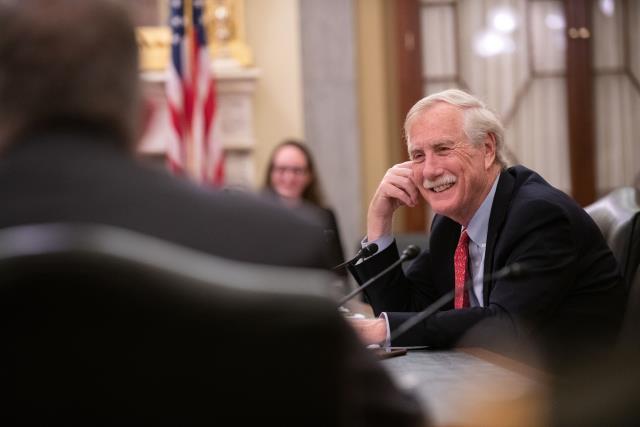
As a reminder, you can read more on my regularly updated press release page at king.senate.gov. Here are some other priorities I’ve been working on:
- Confronting the PFAS crisis. The Maine Congressional delegation is calling on the Biden administration to swiftly and fully utilize all resources and authorities that can assist in responding to PFAS contamination, which is increasingly impacting Maine farmers and rural communities. Read more HERE.
- Cutting costs of insulin nationwide. I introduced legislation to cap the out-of-pocket cost of insulin nationwide – building on a Maine law that caps out-of-pocket insulin costs for those with state-regulated commercial insurance. Read more HERE.
- Supporting Maine potato growers. Senator Jim Risch (R-Idaho) and I led a bipartisan group of 30 lawmakers in calling on the Biden administration to resolve a trade dispute blocking fresh potato exports to Mexico. The dispute is currently blocking $150 million in annual revenue for U.S. potato farmers. Read more HERE.
- Helping lobstermen afford new gear. The Maine Congressional delegation introduced bipartisan legislation to support lobstermen by creating a grant program to help them comply with federal right whale regulations requiring a change in fishing gear. Read more HERE.
- Bolstering healthcare services across Maine. Seven Maine healthcare centers will receive $9,031,836 from the Department of Health and Human Services in areas from St. Croix to York County. Read more HERE.
In The News
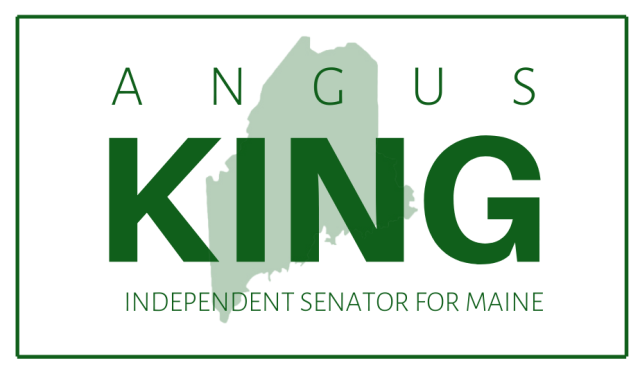
Thanks for subscribing to my monthly newsletter! I would love to hear your ideas for how we can make Maine and our country a better place. Please feel free to reach out with any questions, comments, or concerns by visiting: https://www.king.senate.gov/contact —we look forward to hearing from you.
All the best, and stay healthy!

To unsubscribe to this e-Newsletter click HERE.
|